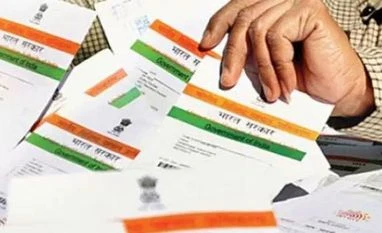With the Supreme Court (SC) on Wednesday ruling that private entities cannot ask customers for Aadhaar details, financial institutions — always vocal about the benefits of seeking biometric number for verification — fear more expenses. They are also awaiting instruction from regulators to see what steps can be taken for the future.
“Having an Aadhaar card makes it very convenient to open an account. On our digital channel, an account can be opened within five minutes with the help of an Aadhaar card,” said Rajnish Kumar, chairman, State Bank of India (SBI).
All banks, including SBI, have seen a huge spurt in digital on-boarding of customers since the Aadhaar roll-out.
SBI said it opens 27,000 accounts digitally per day, of which 80-85 per cent are linked to Aadhaar. BankBazaar.com said a majority of their digital customers opted for e-KYC through Aadhaar-based one-time password.
Industry experts said despite the ruling, Aadhaar might still be the preferred route of on-boarding since it was inexpensive and convenient. Many bankers, however, refused to comment on the judgment.
A senior banker, on condition of anonymity, said: “Digital on-boarding is completely dependent on Aadhaar. Till the industry builds models to support other means of digital on-boarding, Aadhaar will remain the primary source of verifying customer’s data.”
Some are already thinking of alternatives.
“Customers can now either opt for Aadhaar-based digital on-boarding or go to the branches and get physically verified. The latter is more costly and time-consuming,” said Vivek Belgavi, partner and leader, fintech, PwC India.
Financial institutions also said they were awaiting responses from regulatory authorities, as the recent judgment could change earlier directives.
“It remains to be seen how the Reserve Bank of India restructures the customer due-diligence procedure,” said Adhil Shetty, chief executive officer, BankBazaar.com.
Neeraj Prakash, managing director, Shriram General Insurance Company, said it was awaiting instructions from the Insurance Regulatory and Development Authority of India (Irdai). “The Irdai has made it mandatory for insurance companies to link a customer’s Aadhaar details with insurance policies. As the Supreme Court has scrapped Section 57, we will await instructions on how we can take it forward,” he added.
One subscription. Two world-class reads.
Already subscribed? Log in
Subscribe to read the full story →

Smart Quarterly
₹900
3 Months
₹300/Month
Smart Essential
₹2,700
1 Year
₹225/Month
Super Saver
₹3,900
2 Years
₹162/Month
Renews automatically, cancel anytime
Here’s what’s included in our digital subscription plans
Exclusive premium stories online
Over 30 premium stories daily, handpicked by our editors


Complimentary Access to The New York Times
News, Games, Cooking, Audio, Wirecutter & The Athletic
Business Standard Epaper
Digital replica of our daily newspaper — with options to read, save, and share


Curated Newsletters
Insights on markets, finance, politics, tech, and more delivered to your inbox
Market Analysis & Investment Insights
In-depth market analysis & insights with access to The Smart Investor


Archives
Repository of articles and publications dating back to 1997
Ad-free Reading
Uninterrupted reading experience with no advertisements


Seamless Access Across All Devices
Access Business Standard across devices — mobile, tablet, or PC, via web or app
)

